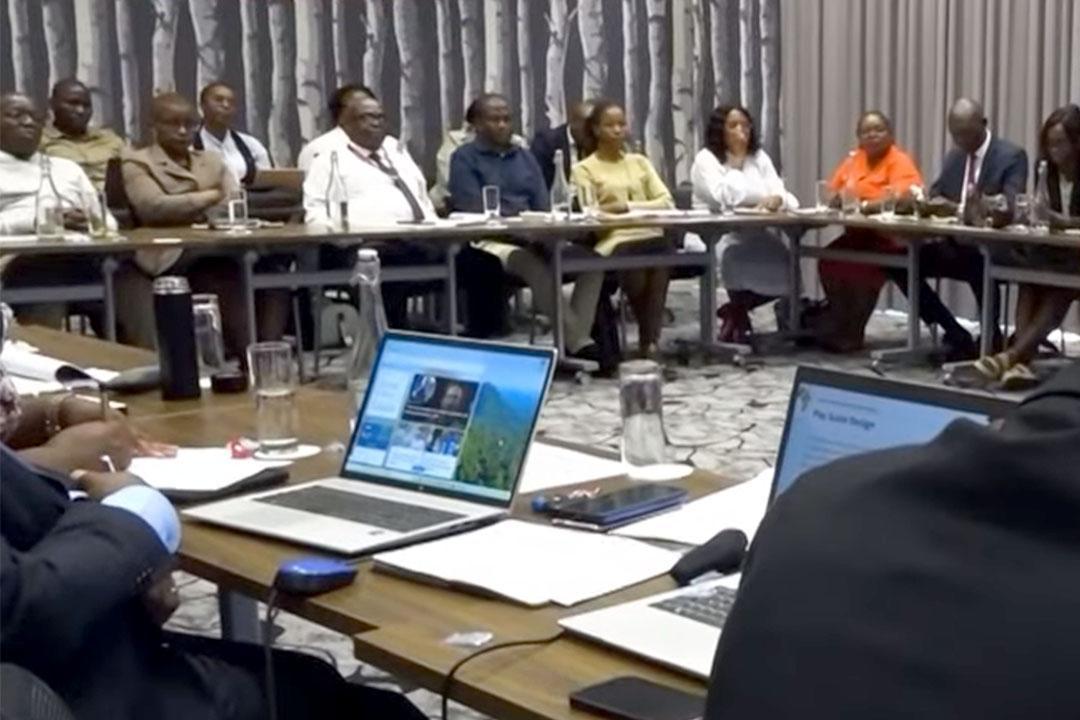Africa-Press – Eswatini. Civil servants’ long-awaited salary review discussions remain on track, with the crucial Scenario 3 negotiations now rescheduled for Monday. Although briefly delayed due to the illness of a consultant, the extra time has only strengthened optimism that government and unions will soon reach a balanced agreement that prioritises meaningful salary adjustments for thousands of workers.
The talks were meant to take place this week between the Government Negotiating Team (GNT) and the Public Sector Unions (PSUs). The PSUs include Swaziland National Association of Teachers (SNAT), National Public Servants and Allied Workers Union (NAPSAWU), Swaziland Nurses Association (SNA), and the Swaziland National Association of Government Accounting Personnel (SNAGAP).
Cabinet’s approval of Scenario 3 had raised hopes among civil servants that meaningful salary adjustments may finally be within reach. The next step now rests with the Joint Negotiation Forum (JNF), which will meet with the unions to decide whether Scenario 3 will be implemented or if workers will press for alternative options.
Five Scenarios on the Table
The salary review exercise, undertaken by consultants, produced five scenarios:
Scenario 1: The most generous, but dismissed as unaffordable for government.
Scenario 5: The least generous, criticised for being insignificant.
Scenarios 2, 3 and 4: Middle-ground options.
Cabinet endorsed Scenario 3 – considered more realistic than Scenario 2 but better than Scenario 4. While some civil servants welcome Scenario 3 as a balanced compromise, others argue that Government can afford Scenario 2, which would deliver bigger increases.
What Scenario 3 Means in Numbers
The proposed pay scales reflect differentiated increases across job levels:
Grades A1–A3 (entry-level workers): Salaries between E41 000 and E62 000, with 16% progression across notches.
Grades B1–B5 (junior officers): E64 000 to E132 000, also with 16% progression.
Grades C1–C4 (mid-level officers): E136 000 to E239 000, under the same 16% progression.
Grades D1–D5 (senior managers): E282 000 to E418 000, with a 10–12% progression.
Grades E1–E2 (executives): E460 000 to more than E600 000, with a 10% progression.
In short, Scenario 3 prioritises bigger boosts for lower and mid-level staff, while senior managers and executives receive more modest adjustments.
Review Process and Expertise
The review exercise was commissioned by Public Service Minister Mabulala Maseko on 3 July 2024. The assignment was awarded to South Africa’s Emergence Growth Consultancy, working alongside local firm Umelusi Management Consultancy.
Emergence Growth Executive Chairman Dr Patrick Smythe, who once lived in Hlatikhulu for 17 months, promised that his team would “over-deliver” on the project. Executive Consultant Jonathan Erickson emphasised skills transfer to Umelusi staff, ensuring local capacity-building.
Umelusi’s Project Coordinator, Siphephiso Dlamini, a former NAMBoard CEO, said their role was to address social and cultural dynamics for Eswatini’s 40 000 civil servants. Umelusi Director Thabo Magagula added that the project would help capacitate local professionals.
What’s Next?
As the Joint Negotiation Forum prepares to reconvene, there is renewed hope that Scenario 3 will pave the way for long-overdue salary improvements. Civil servants are looking forward with cautious optimism, encouraged by the government’s commitment and the unions’ determination to secure a fair outcome. The upcoming talks now stand as a promising opportunity to deliver the relief and recognition that Eswatini’s public servants have long awaited.
For More News And Analysis About Eswatini Follow Africa-Press







